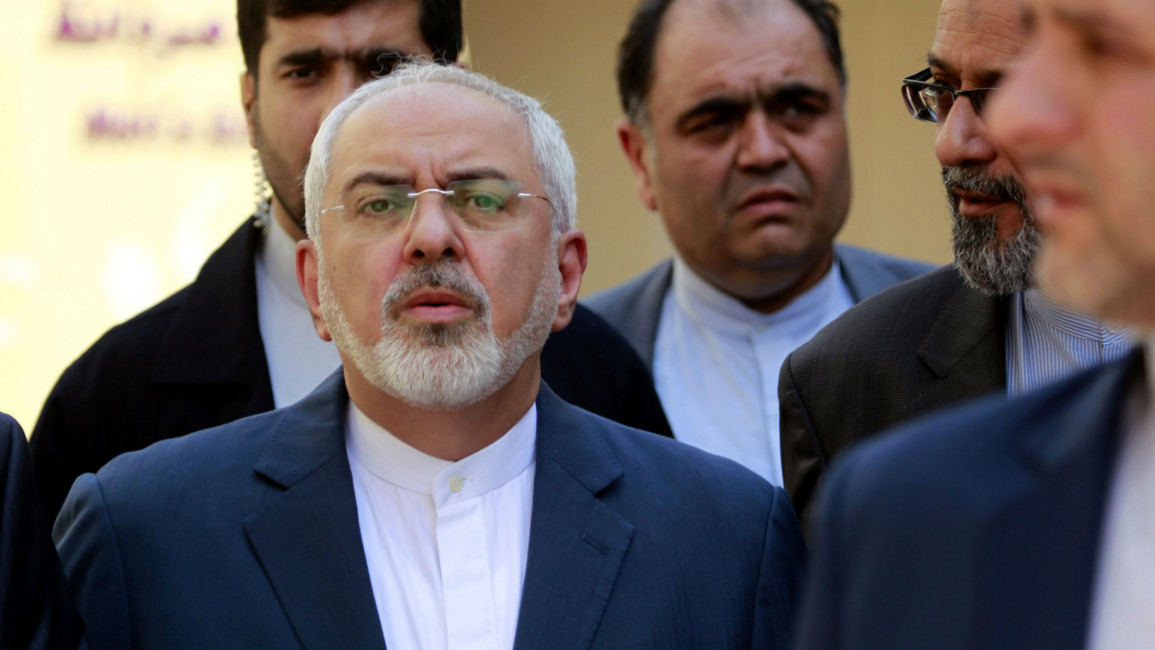Iran FM calls for cooperation with Arab Gulf neighbours
Gulf Arab countries must work with Iran to combat a wave on instability in the Middle East, Iran's foreign minister Mohammad Javad Zarif said in an article published by several Arab newspapers on Monday.
In the article titled “The neighbour, then the house: Moral guidance or strategic imperative?”, Zarif calls for dialogue to solve the region’s pressing issues such as “terrorism, extremism and sectarian warfare”.
"We must all accept the fact that the era of zero-sum games is over, and we all win or lose together," he wrote in Arabic, backing up his argument with Quranic passages.
| We must all accept the fact that the era of zero-sum games is over, and we all win or lose together - Mohammad Javad Zarif |
“Iran’s top priority has always been seeking good, strong relations with its neighbours”, said the Foreign Minister. “It is impossible to deny the need to make intelligent assessments of the ongoing complexities in the region in order to purse sustainable policies to combat fighting terrorism for example,” he added.
Zarif, who recently concluded a tour of Kuwait, Qatar and Iraq, stressed that Iran’s recent nuclear agreement poses “no threat” to its neighbours and was an achievement for all countries in the region because it has brought an end to 12 years of “unnecessary” tension.
The Iranian senior diplomat said that the ongoing war in Yemen could potentially serve as good example for how to solve conflicts in the region, pointing to Iran’s four-point peace plan on resolving the Yemen crisis that was submitted to the UN.
“Regional dialogue must be based on mutual goals, the most important of which are respecting sovereignty, territorial integrity and political independence of all countries as well as non-breaching of borders and non-interference in the internal affairs of other countries,” Zarif said.
Also on Monday, US Secretary of State John Kerry began talks with Gulf states in Qatar to convince them of the merits of last month's nuclear deal with Iran.
Most Gulf Arab states are worried that Iran's July 14 accord with the US and other powers will hasten the easing of hostilities between Tehran and Washington and embolden the Islamic Republic to support its paramilitary allies in the region.
Despite Zarif’s calls for regional unity, Iran remains locked in a struggle with Saudi Arabia and its allies for regional primacy. A deadly bombing in Bahrain last week, which the government linked to Iran, has bolstered feelings of mistrust in the region.


![President Pezeshkian has denounced Israel's attacks on Lebanon [Getty]](/sites/default/files/styles/image_684x385/public/2173482924.jpeg?h=a5f2f23a&itok=q3evVtko)



 Follow the Middle East's top stories in English at The New Arab on Google News
Follow the Middle East's top stories in English at The New Arab on Google News


